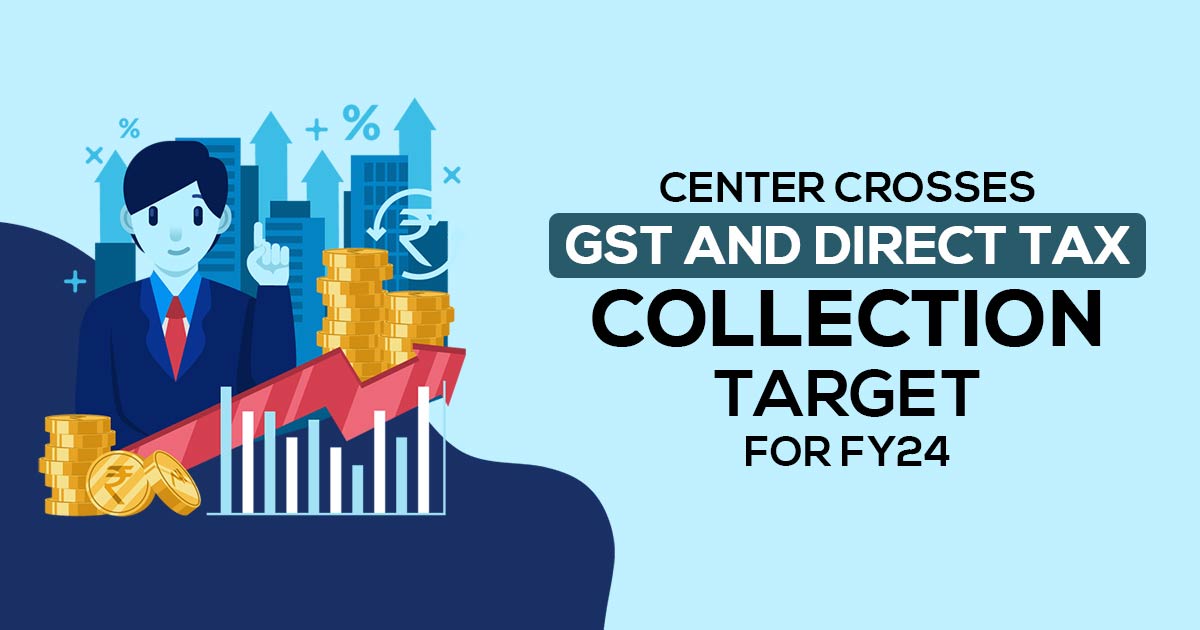 |
Recent indicators suggest that the government might not just meet but exceed the aimed Rs 33 lakh crore mark, potentially hitting over Rs 34.5 lakh crore in gross taxes by the year-end.
Reports highlight the stellar performance of both direct taxes and goods and services tax (GST) collections as the driving force behind this fiscal triumph. Preliminary data showcases a significant year-on-year surge of 20.66 per cent in net direct tax collections, showcasing an impressive achievement until December 17, 2023, in the ongoing financial year.
Net collections, after factoring in refunds, hit Rs 13.7 lakh crore in FY24, marking a significant rise from the Rs 11.35 lakh crore reported in the corresponding period of the previous fiscal year.
In a detailed breakdown of direct tax collections, corporation taxes contributed Rs 6,94,798 crore (net of refunds), while personal income tax, inclusive of securities transaction tax (STT), totalled Rs 6,72,962 crore (net of refunds).
Read Also: The Benefits of Gen GST Software for Taxpayers & Trades
For the fiscal year 2023-24 (FY24), the government had earmarked Rs 18.22 lakh crore from direct taxes. In an announcement made on Monday, the Central Board of Direct Taxes (CBDT) revealed that refunds amounting to Rs 225,251 crore had been issued in FY24 until December 17, 2023.
Concurrently, Central GST collections had reached approximately Rs 5.4 lakh crore until November 2023, signalling a 14 per cent growth compared to the analogous period in the preceding financial year.
The government had aimed for Rs 9.56 lakh crore from Central GST. Notably, November's monthly GST collection surged past the Rs 1.60 lakh crore mark for the sixth time in FY24, hitting Rs 1.68 lakh crore.
Finance Minister Nirmala Sitharaman voiced contentment with this performance, noting that the average gross monthly collection this fiscal year has been Rs 1.66 lakh crore, a significant jump from Rs 1.5 lakh crore in FY23.
However, customs and excise duty collections haven't shown the same vigor. Customs duty collections remained largely static, totalling Rs 1.24 lakh crore until October 2023, compared to Rs 1.23 lakh crore in the corresponding period last year.
Central government excise duty collections faced a year-on-year dip, amassing Rs 1.5 lakh crore in the first seven months of FY24, contrasting with Rs 1.65 lakh crore during the same period in the previous year. Despite this, the strong show in direct taxes and GST is anticipated to balance out the moderate customs and excise duty collections, ensuring a positive trajectory for the government's overall tax revenue in this fiscal year.

Comments
Post a Comment